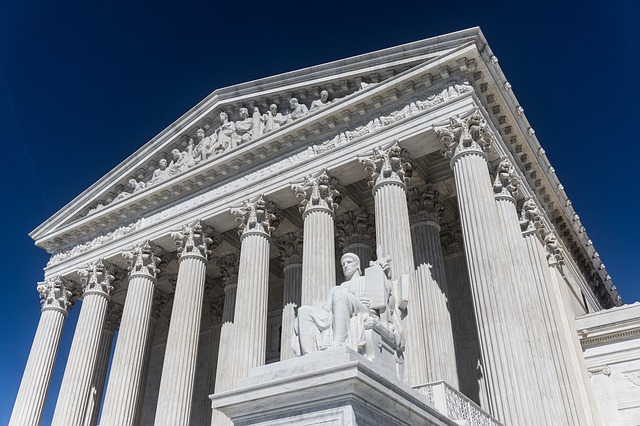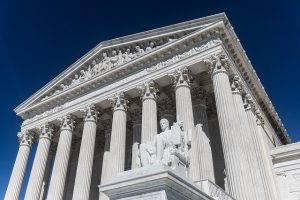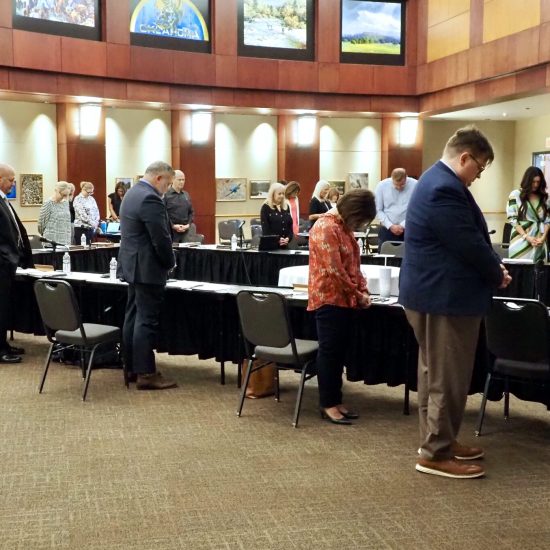
As the U.S. Supreme Court today (Jan. 22) hears arguments in a critical church-state case, Espinoza v. Montana Department of Revenue, one problematic phrase the justices will likely hear a lot is “Blaine amendments.” The problem? Those wishing to tear down our church-state separation that protects religious liberty use the phrase to tell an inaccurate story.

Brian Kaylor
The case from Montana is actually about “no-aid” clauses, which are found in about 38 state constitutions to bar government funding of religious groups. Rather than talk about the issue of no state aid to religion, Christian Nationalists seeking government support for their faith instead concocted a story about a man named Blaine to falsely malign ‘no-aid’ clauses as anti-Catholic.
In 1875, U.S. Rep. James Blaine, a Republican from Maine, proposed a federal constitutional amendment to bar government aid to religious schools. Although his amendment failed, several states passed similar amendments into their own constitutions. When Montana entered the Union over a decade later, it adopted this constitutional clause, sometimes oddly called a “Baby Blaine” amendment. However, 19 other states already had similar constitutional clauses barring governmental aid to houses of worship or religious schools before Blaine’s proposal.
Thus, to cast all “no-aid” clauses as “Blaine amendments” is historically inaccurate. Rather than inspiring the movement, Blaine merely unsuccessfully sought to bring an existing movement to the national constitution. Not that Christian Nationalists allow such inconvenient details bother them.
We saw this claim in 2017 when the Supreme Court ruled in the case Trinity Lutheran Church of Columbia, Inc. v. Comer, which also dealt with a state “no-aid” clause, that time in Missouri. Opponents of the clause called it a “Blaine amendment” even though it predated Blaine.
By the time Blaine first proposed his amendment in December of 1875, Missouri’s constitutional convention had already met early that year in May and June to write the clause many now call a “Blaine amendment.” Additionally, earlier Missouri constitutional clauses made similar church-state declarations, like an 1870 amendment barring support of religious schools. Even Missouri’s first constitution in 1820 included a clause declaring no one would be compelled to support a place of worship. Unless state legislators were different in the 19th century, I suspect they were unable to predict the future to preemptively adopt a “Blaine amendment.”

U.S. Supreme Court building
Yet, Christian Nationalist groups like the Alliance Defending Freedom, the Christian Nationalist organization that brought the Trinity Lutheran case, falsely claimed in its official court filings and public statements that Missouri’s ‘no-aid’ clause is a “Blaine amendment.” To do so, they used deceptive language. For instance, in one filing to the Supreme Court, they wrote that Missouri’s clause “has a credible connection” to Blaine’s proposal since “it was enacted in 1875 — the exact same year the federal Blaine Amendment was proposed and debated.” That claim distorts the actual timeline. That is like suggesting that since Donald Trump and Barack Obama were both president in 2017, Obama was president because of Trump.
Unfortunately, that rhetoric worked. Even this week multiple news outlets — like the Wall Street Journal and USA Today — reporting on the Espinoza case referred back to the Trinity Lutheran case as dealing with Missouri’s “Blaine amendment.”
So, why does this matter?
The ADF and others use this rhetorical sleight of hand in an effort to switch the debate from the question of whether government should fund religious groups (a religious establishment question) to the issue of alleged anti-Catholicism (a religious discrimination question). The argument is that Blaine was supposedly driven by anti-Catholic sentiment and therefore these state amendments should be rejected as inherently anti-Catholic. But this, too, is a historical error.
“The origins of the no-funding principle predate not only the Blaine Amendment but also the advent of significant Catholic immigration in the 1840s,” the Baptist Joint Committee for Religious Liberty explained in its official brief for the Espinoza case. “It distorts the historical record to insist that anti-Catholicism was the only or primary motivation for the Amendment and the actions of its supporters.”
The BJC’s brief explains that the “no-aid” clauses instead arose from a sincere desire to uphold the First Amendment’s religious liberty protections. The brief adds: “Republicans and Democrats alike agreed that the proposed amendment would reinforce a longstanding constitutional principle against government funding of religious institutions.”
The attacks on Blaine also miss the point since Blaine, whose mother was Catholic, did not write a bill preventing government support of Catholic schools and churches. Instead, his bill — like Missouri’s earlier constitutional clauses and the many other state ‘no-aid’ clauses like the one in Montana — prevented the use of public funds for any religious school or house of worship.
That is why the Trinity Lutheran case of this supposedly anti-Catholic constitutional clause involved, not a Catholic church, but a Lutheran one. And that’s why the school in the Espinoza case is Protestant, not Catholic. Even if Blaine had been anti-Catholic, the “no-aid” clauses did not target Catholics but instead treated all religious groups the same — and thus are constitutional.
To call ‘no-aid’ clauses “Blaine amendments” is to accept an ideologically-charged reframing of history. The idea that government should not provide aid to religious institutions did not start with Blaine. Instead, that argument can be traced back to the U.S.’s founding era (and even earlier). Religious freedom protections in our nation emerged in part as a response to states forcing members of minority faiths to pay taxes to benefit larger faith communities. Now that wall of separation is being chipped away, in part because of an effective marketing campaign to rewrite history. We must not aid that effort to undermine religious liberty for all.
Brian Kaylor is editor and president of Word&Way.






